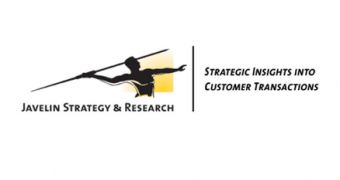Javelin Strategy & Research has released its 2013 Banking Identity Safety Scorecard report, which focuses on fraud cases and their impact on consumers and financial institutions.
According to the figures, in 2012, losses generated by new account fraud and account takeovers, fraud types that have the largest impact, increased by 50%.
Javelin has been monitoring the security posture of financial institutions for the past eight years, ranking them based on the company’s three-stage “Protection, Detection and Resolution Model.”
While fraud cases are on the rise, the company has found that 5 of the top 25 financial institutions (FIs) have banned the use of social security numbers (SSNs) to authenticate a customer’s identity.
This is a major step forward considering that in 2011, none of the top FIs prohibited the use of SSNs, and considering that the information is fairly easy to obtain these days.
On the downside, a 20% adoption is still low considering that account takeover fraud has grown considerably over the past years.
Another major step towards preventing identity fraud is the fact that 40% of FIs use their customers’ financial behavior to detect and block transactions that are possibly made by fraudsters.
So what are the leading banks when it comes to security? Bank of America was appointed “Best in Class for Bank Identity Safety” and “Best in Prevention and Detection.” Chase was named “Best in Resolution”
“The best security model is one where FIs and their customers partner together in securing financial accounts,” said Al Pascual, industry analyst, security, risk and fraud, at Javelin Strategy & Research.
“By focusing on educating and engaging the consumer in security authentication decisions and procedures, the FI can most effectively prevent attacks and threats from plaguing their valuable customer base.”
The complete report can be purchased from here.

 14 DAY TRIAL //
14 DAY TRIAL //